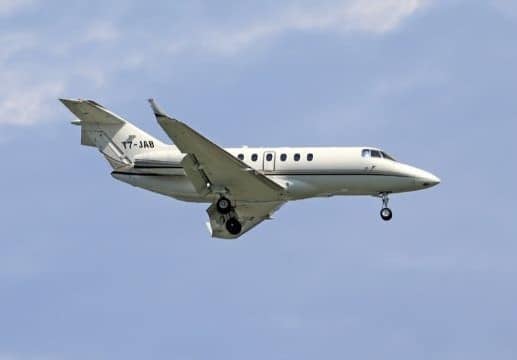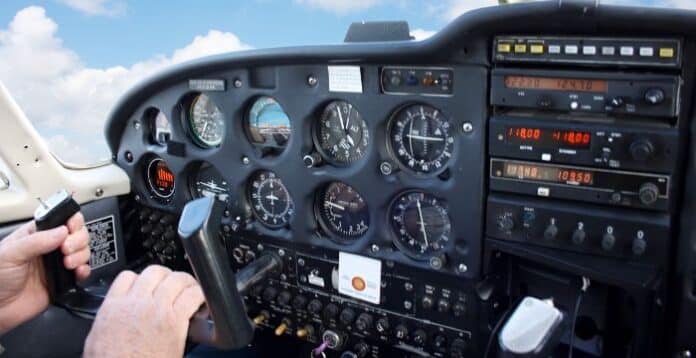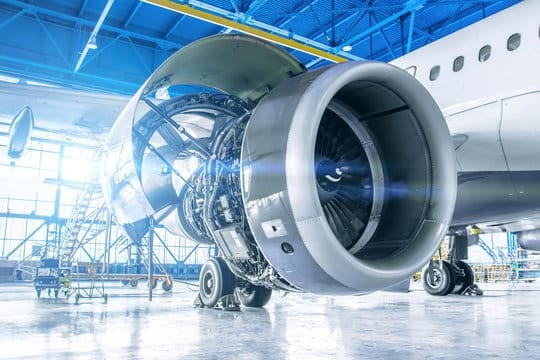The aviation industry is a critical component of modern transportation and plays a vital role in connecting people and goods around the world. An effective aviation management system is essential for smooth and safe operations in the industry, which involves coordinating resources, personnel, and technologies.
You can manage aviation operations efficiently with the help of an aviation management system.
Aviation management itself is a complex field that involves coordinating various resources to ensure safe and efficient aviation-related operations. It includes strategic planning, budgeting, scheduling, procurement, human resources management, and quality control.
The aviation management system is a software solution that supports aviation industry operations such as scheduling, maintenance, crew management, resource allocation, safety management, and regulatory compliance. In short, it is an important tool for managing the complex and challenging operations of the aviation industry.
Key Takeaways
|
Table of Content:
Table of Content
5 Common Types of Aviation Management Systems

Flight management system
This system is a computer-based navigation system that enables pilots to navigate aircraft from takeoff to landing. It includes functions such as flight planning, navigation, performance optimization, and aircraft control.
Maintenance management system
The maintenance management system is used to manage aircraft maintenance operations. In other words, this system helps you with maintenance scheduling, tracking maintenance history, and managing parts inventory.
Safety management system
The safety management system is a system that is designed to ensure safety in aviation operations. It has many useful functions such as safety policy, risk management, safety assurance, and safety promotion.
Crew resource management system
This system is a training program that is designed to improve communication, teamwork, and decision-making among flight crews. Its functions are crew briefing, cockpit resource management, and situational awareness.
Airport management system
The airport management system is used to manage airport operations. This system helps you with passenger processing, baggage handling, airport security, and ground handling. Therefore, it improves efficiency, reduces delays, and enhances overall safety for passengers and airport staff.
Also Read: HashMicro Fleet Management Software to Digitize the Oil & Gas Company
Challenges of Using an Aviation Management System

Implementation and integration
Implementing an aviation management system can be complex and costly, and integrating different systems can be a significant challenge. This is because compatibility issues between different systems can cause delays and disruptions in operations.
Data management
Aviation management systems generate vast amounts of data. Managing and analyzing those data can be difficult, especially when data quality issues can impact decision-making and compromise safety and efficiency.
Cybersecurity
Aviation management systems can be vulnerable to cyber-attacks. This can be worrying because those cyber attacks can compromise the safety and security of aviation operations. Therefore cybersecurity is one of the challenges in using an aviation management system.
Conformity
Conformity means to comply with standards, rules, or laws means to adhere to them and follow their guidelines and requirements. Keeping up with changes in regulations can be challenging because aviation management systems must comply with various regulations and standards.
Human factors

The Importance of Aviation Management System
An aviation management system is essential for safe and efficient operations in the aviation industry. Without the system, airlines, airports, and other aviation organizations would struggle in the aviation industry.
Here are the key reasons why aviation management systems are important.
Also Read: Why is Aviation ERP Essential for Aviation Industry?
Safety
Aviation management systems are designed to improve safety in aviation operations. These systems provide critical information and tools to help pilots, air traffic controllers, maintenance personnel, and other aviation professionals make informed decisions that prioritize safety.
Efficiency
The aviation management system is also designed to improve the efficiency of aviation operations. This system enables airlines and airports to optimize their operations, reduce delays, and increase the capacity of the aviation system.
Quality
Aviation management systems are critical for maintaining the quality of aviation operations. These systems enable airlines and airports to manage their resources effectively, track maintenance activities, and monitor compliance with regulations and standards.
Compliance

Cost-effectiveness
Aviation management systems can also help reduce costs for aviation organizations. By optimizing operations, reducing delays, and improving maintenance practices, you can reduce costs and improve the bottom line.
7 Aviation Management System Features
Aviation management systems are designed to facilitate the safe and efficient operation of the aviation industry. They also offer a wide range of features to support this goal. Here are some of the common features of an aviation management system.
Data Management
With this feature, the aviation management system collects and manages a wide range of data related to aviation operations. These operations include flight schedules, aircraft maintenance history, fuel consumption, and passenger information.
Analytics and Reporting
By using aviation management systems, advanced analytics and reporting features help to analyze data and generate insights that can improve operations. It means that these insights can lead to cost savings, increased safety, and improved customer satisfaction in the aviation industry.
Planning and Scheduling

Resource Management
This feature helps airlines and airports manage their resources effectively, including aircraft, crew, maintenance personnel, and ground handling equipment. By providing real-time visibility into resource allocation and usage, aviation management systems can help make data-driven decisions to optimize operations and improve overall performance.
Safety Management
The safety management feature of the aviation management system helps you with risk assessment, hazard identification, and incident reporting. With that, you can take proactive measures to mitigate them to ensure safety in aviation operations.
Regulatory Compliance
This aviation management system feature helps to automate compliance processes and provide real-time updates. Because of the regulatory compliance feature, you can stay up-to-date with the latest regulations and standards, avoiding costly penalties, and improving your reputation in the aviation industry.
 Communication and Collaboration
Communication and Collaboration
The communication and collaboration feature enables effective communication and collaboration among aviation professionals, including pilots, air traffic controllers, maintenance personnel, and ground staff.
This can lead to greater situational awareness and faster decision-making which improves efficiency and safety in aviation operations.
Also Read: Best Fleet Management Software and 5 Tips to Optimize Fleet Management
Aviation Management System from HashMicro: How HashMicro’s Software Benefits the Aviation Business
One of the best aviation management systems is Fleet Management Software from HashMicro. This software can maximize the efficiency of aviation management and provide comprehensive tracking capabilities.
Furthermore, it allows you to monitor the fuel consumption and movement of each vehicle in your fleet. HashMicro’s Fleet Management Software grants you benefits, such as easy fleet tracking, automated scheduling, well-tracked conditions, and accurate reporting.
Moreover, its main features include cost tracking, maintenance scheduling, a document management system, internal transfer management, work order management, and Internet of Things (IoT) integration. With these main features, managing aviation-related operations will be easier for you.
Conclusion
Effective aviation management is crucial for safe and efficient aviation-related operations, and an aviation management system is a valuable software solution that can help achieve this.
With the support of an aviation management system, the aviation industry can better coordinate resources, personnel, and technologies, ensuring compliance with regulations, optimizing operations, and improving safety for all involved.
If you need an aviation management system, Fleet Management Software from HashMicro might be the one for you. With main features that will grant you benefits in terms of effectiveness and efficiency in your aviation operations. You can try its demo for free just by click here.







 Communication and Collaboration
Communication and Collaboration



























